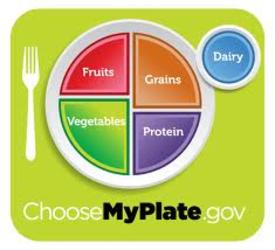Should I eat more?
Replies
-
I am sorry but you are incorrect on that, bmr is the bare minimum you need to breathe, and function, that is not what you burn in the run of a day, to shed fat you need to eat 500 less per day to shed 1 pound a week. My bmr is 1669 calories I eat 1940/day and lose 1 to 1.6 pounds a week depending on how hard I work out and I eat back nearly every single exercise calorie I earn as well. I have never plateaued or had a problem shedding week in week out for over 100 days now. So you need to go back and correct that mistake you made. Daily caloric needs and BMR are 2 different things.This is a good website to calculate your BMR. If you subtract 500 a day (3500 a week) you will lose one pound a week.0 -
I lost over a 70 lbs then hit a plateau for about a month, was feelling weak, I upped my calories and now I am loseing weight again, does not make a lot of sense to me. Now I feel better and am loseing weight again. I dont think 1200 calories is a magic number, I would shoot for a deduction of less then 20 percent of what it takes for you to maintain your current body weight plus exercise.0
-
they enforce that 1200 because it is super hard to get in proper nutrition for the body when you are under that caloric goal, it does not apply to all but to feed the body right it requires close attention to diet when on a caloric deficit that is low like that.0
-
A HRM is only useful in measuruing calories burned during aerobic exercise, because they effectively measure the oxygen demand based on your heart rate. A body bugg measures other parameters (and does not measure heart rate at all) so it is useful for all day use.0
-
I am sorry but you are incorrect on that, bmr is the bare minimum you need to breathe, and function, that is not what you burn in the run of a day, to shed fat you need to eat 500 less per day to shed 1 pound a week. My bmr is 1669 calories I eat 1940/day and lose 1 to 1.6 pounds a week depending on how hard I work out and I eat back nearly every single exercise calorie I earn as well. I have never plateaued or had a problem shedding week in week out for over 100 days now. So you need to go back and correct that mistake you made. Daily caloric needs and BMR are 2 different things.This is a good website to calculate your BMR. If you subtract 500 a day (3500 a week) you will lose one pound a week.
I'm confused. You said you're supposed to eat 500 less cals than your bmr to lose a pound a week? But then you say your bmr is 1669 and that you eat 1940 and lose 1-1.6 lb a week. My bmr is 1426, and mfp set met at 1290 cals/day to lose 1 lb./week. Is that wrong? Should I be eating more than that? My weightloss has definitely been a little slow.0 -
daily needs are not your bmr. BMR is the bare min you need to function, I have never said that the bmr is the daily requirement, as soon as you move, eat and workout, you require more. I am set to active, I workout 4 times a week on average burning 600-900 cals per workout. So at 167.4 pounds now my bmr as calculated by mfp is 1669 cals. My daily requirements to maintain my current weight is 2440 based on mfp calculations. I am eating 500 less than that to shed 1 pound a week (1940). What some whom register on here fail to realize is that mfp starts you out with the deficit needed to shed weight built in without any workouts. So if you joined and filled out all the info required and set your weight loss at a 1 lb/wk then you already have the 500 cal a day deficit needed built into the daily goal. That is why they say eat back the exercise calories. If you eat back every single calorie they give you for exercise you will still lose that weight. Exercise cals are a bonus, a reward for working out if you will. I workout to eat more, and let my metabolism burn off the fat. The point of working out is to raise that metabolic rate and it works quite well if you log faithfully and accurately.0
This discussion has been closed.
Categories
- All Categories
- 1.4M Health, Wellness and Goals
- 398.5K Introduce Yourself
- 44.7K Getting Started
- 261K Health and Weight Loss
- 176.4K Food and Nutrition
- 47.7K Recipes
- 233K Fitness and Exercise
- 462 Sleep, Mindfulness and Overall Wellness
- 6.5K Goal: Maintaining Weight
- 8.7K Goal: Gaining Weight and Body Building
- 153.5K Motivation and Support
- 8.4K Challenges
- 1.4K Debate Club
- 96.5K Chit-Chat
- 2.6K Fun and Games
- 4.8K MyFitnessPal Information
- 18 News and Announcements
- 21 MyFitnessPal Academy
- 1.5K Feature Suggestions and Ideas
- 3.2K MyFitnessPal Tech Support Questions



